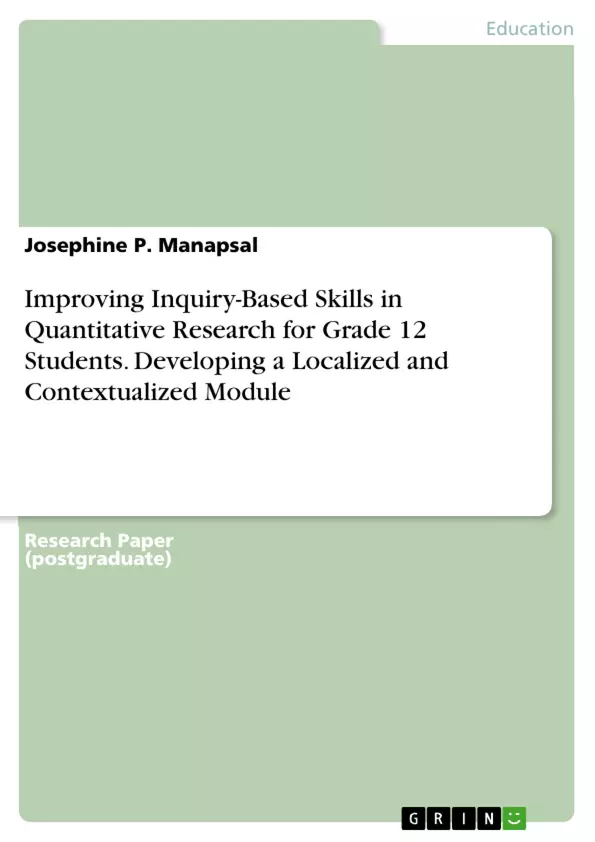This study aims to compare the academic track and Technical-Vocational-Livelihood (TVL) track in terms of inquiry-based thinking skills and learning competencies in Practical Research 2 among Grade 12 students. Utilizing a descriptive-comparative quantitative research design with purposive sampling, the study involved 71 students from two academic tracks: HUMSS/ABM (Humanities and Social Sciences / Accountancy, Business, and Management) and TVL (Technical-Vocational-Livelihood) track.
The Inquiry-based Thinking Scale (ITS) and a self-perceived learning competency questionnaire were used to gather data, yielding mean scores of 4.18 and 3.62 for inquiry-based thinking, and 4.16 and 3.657 for learning competencies, respectively, across the two groups. Results indicated significant differences in both inquiry-based thinking skills and self-perceived learning competencies (p-value = 0.001), prompting the rejection of the null hypothesis.
The findings underscore the need for tailored educational interventions that reflect the unique cultural, social, and economic contexts of students. Recommendations include the development of personalized learning plans, enhanced teacher training programs, and the integration of technology to support inquiry-based learning. Future research directions suggest longitudinal studies, expanded demographic analyses, and interdisciplinary approaches to further refine and validate the effectiveness of these educational strategies. This study contributes to the broader goal of creating a more relevant and effective education system that equips students with the Inquiry-based thinking skills necessary for academic and real-world success.
Table of Contents
- Introduction
- Literature Review
- Research Questions
- Scope and Limitation
- Methods
- Instrumentation
- Inquiry-based Thinking Scale (ITS)
- Self-Perceived Learning Competencies in Practical Research 2 (LCPR2)
- Ethical Issues
- Discussion
- Implications
- Recommendations
- Future Directions
Objectives and Key Themes
This study aims to compare inquiry-based thinking skills and learning competencies in Practical Research 2 between Grade 12 academic and TVL track students in the Philippines. It seeks to identify gaps and inform the development of a localized and contextualized module for the course.
- Inquiry-based thinking skills among Grade 12 students.
- Learning competencies in Practical Research 2.
- The effectiveness of standardized versus localized modules.
- The impact of cultural, social, and economic contexts on learning.
- Development of a tailored educational module for Practical Research 2.
Chapter Summaries
The Introduction establishes the importance of inquiry-based learning and the need for localized educational resources in the context of Practical Research 2 in the Philippines. The Literature Review explores the theoretical underpinnings and benefits of inquiry-based learning (IBL), highlighting challenges and the need for contextualized modules. The Methods section details the research design, sampling, and instruments used to assess inquiry-based thinking skills and learning competencies. The Discussion (excluding conclusions) will likely analyze the findings comparing the two student tracks. The Implications and Recommendations will propose strategies for improving the effectiveness of Practical Research 2 education.
Keywords
Inquiry-based learning, localized modules, contextualized education, critical thinking, Grade 12, Practical Research 2, quantitative research, Philippines, HUMSS/ABM, TVL.
- Quote paper
- Josephine P. Manapsal (Author), 2023, Improving Inquiry-Based Skills in Quantitative Research for Grade 12 Students. Developing a Localized and Contextualized Module, Munich, GRIN Verlag, https://www.grin.com/document/1505226



